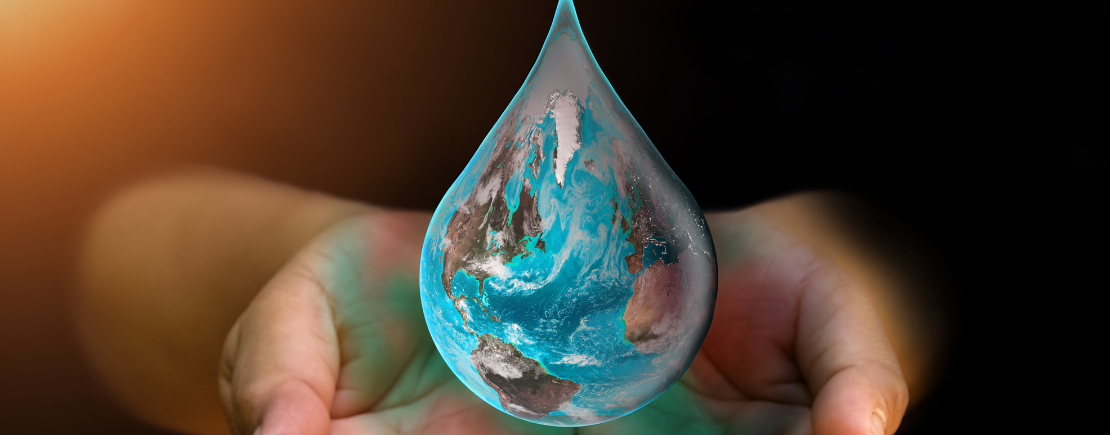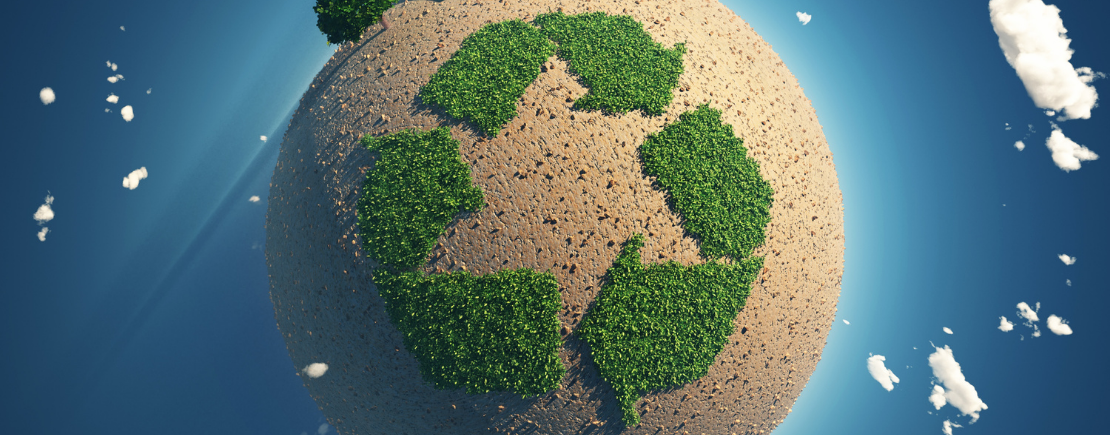ENVIRONMENT IN GEMLİK GÜBRE
Sustainability refers to economic growth without harming the environment and people. As Gemlik Fertiliser, we carry out all our production processes with a sustainability perspective. Being aware that systematic work is the key to success, we carry out our environmental studies on sustainability in line with a system and we have been proving this systematic with the ISO 14001 Environmental Management System certificate since 2020.
WATER AND WASTEWATER
Water is a natural resource that human beings cannot produce in any way. Seventy per cent of the planet we live on consists of water. Only 3 per cent of this water is known as potable fresh water resources. Our accessible fresh water resources correspond to 1 per cent.
Therefore, the importance of paying attention to water use on both national and global scales is increasing. The water crisis is an issue that concerns the whole world closely. It is predicted that the increasing population worldwide may cause a serious water crisis on the horizon if water supply remains constant. As Gemlik Fertiliser, we are aware of the pressure on water.
We show the necessary sensitivity in the use of water, one of the most important inputs of our production. The water required for our procoss is supplied from Lake İznik. However, we are carrying out studies on alternative water resources in order not to interrupt production due to utilisation restrictions that may occur in the resources. Among these, we have projects such as the recovery and reuse of our waste water, the use of sea water, and the use of waste water from local governments' waste water treatment plants. We also carry out the necessary awareness-raising activities for our personnel on water use.
The management of the wastewater used in production and to be discharged is as important as the water entering our business. All wastewater is discharged to the Marmara Sea in accordance with national legislation. In addition, all wastewater is subjected to a continuous measurement system that can measure 24/7 before reaching the receiving environment. The system prevents non-compliant wastewater discharge. Wastewater requiring treatment is treated with appropriate treatment technologies.
Domestic waste water is treated and discharged in the biological treatment plant. In addition, nitrogen-containing wastewater from fertiliser production activities is recycled at a rate of 100% with a zero-waste approach at the "Arionex" treatment plant with advanced treatment technology, which has no other example in Turkey. Thanks to this treatment system, product and pure water are recovered and no wastewater is discharged to the Marmara Sea, which is the receiving environment. Most of the water consumed is used for cooling our chemical processes. At this stage, the heated water is cooled in the cooling tower and reused in the system. In order to determine the temperature contribution of the wastewater, which should be discharged after cooling in order for the system to operate properly, to the marine environment, continuous temperature measurements are carried out at 5 different points, 3 in the sea and 2 on land. According to system measurement results, it is seen that our average contribution is between 0.1-0.5°C and there is no exceeding the limit in any way.
EMISSION
Air is the mixture of gases that surround us. The layer of air we live in is called the atmosphere. Clean air contains approximately 78% nitrogen, 21% oxygen and 1% other gases, dust, water vapour. The deterioration of this natural composition of air is defined as air pollution.
Human beings need oxygen to survive, and they take oxygen from the air through respiration. Air is indispensable for living things and air pollution negatively affects the health of living things.
As a result of our production, emissions such as NOx, CO, dust and ammonia occur in our 14 emission sources. 3 of our 14 emission sources have a continuous measurement system and the emissions generated in these sources are kept under control 24/7. In other emission sources, there are NOx and dust removal systems in line with the needs. In addition, all emission sources are analyzed by an authorized laboratory every 2 years.
In the new systems or processes to be established, national and international legislation evaluation is made and selection and design are made with the foresight of the future. In our facility, which is built on an average of 80 hectares, we regularly carry out irrigation operations to control dust emissions that may occur in the field.
In addition, in order to detect the dust additive that may arise from the urea construction site under construction, we have 24-hour dust measurements made at 5 different points by an authorized laboratory every 3 months.
COMBATING CLIMATE CHANGE
Due to the fact that global temperatures have increased by about 1.1 degrees since 1901, ice areas in the Arctic have shrunk by 40% and the amount of carbon dioxide in the atmosphere has increased by almost 40% since the Industrial Revolution. This rising increases the pressure on the climate and necessitates additional measures to be taken in this regard.
Undoubtedly, the most important of the measures to be taken is the reduction of greenhouse gases released as a result of all human activities, that is, decarbonization studies. For example, the European Union aims to reduce carbon at its borders by 55% by 2035 and achieve carbon net zero by 2050. In our country, with the signing of the Paris Climate Agreement in 2021, the net zero target in 2053 was announced. Yıldırım Holding has made every effort to reduce the pressure on the climate and has set 2050 as the zero carbon target in the group.
As a result of the use of fossil fuels such as natural gas in our business, greenhouse gases called CO2 and N2O, called nitric acid production, are formed. Greenhouse gases generated as a result of our production, which are formed in accordance with national legislation, have been monitored since 2015. In case of continuous operation throughout the year in all our facilities, an average of 1.500.000 tons of CO2 greenhouse gases are released in our facility. Half of this amount is N2O greenhouse gas caused by nitric acid production. At this point, our project work continues to eliminate greenhouse gases by 95-99%. In addition, a transition is being made to more efficient combustion systems in order to reduce CO2 greenhouse gases resulting from natural gas used as fuel.
For example, the 2 steam boilers in our process will be replaced with more efficient boilers by the end of 2023. With this change, it is aimed to reduce 1.000 tons of CO2 per year. Carbon footprint calculations per unit product have started for all our products as of October 2023 in our facility, which is one of the 5 sectors remaining within the scope of the Carbon Border Adjustment Mechanism (CBAM) implemented by the European Union. The studies carried out will remove the obstacles in the export of products to the European Union and at the same time will create the infrastructure for the Emission Trading System planned to be implemented in our country. One of the most important step in decarbonization is the correct management of energy.
In this context, being aware of the importance of energy, necessary actions are taken by determining inappropriate points with energy audits. At points where energy is needed for our process, the excess steam released during production is utilized and thus the amount of energy consumption is reduced. For this energy, which we need in small amounts, we are taking rapid steps towards our zero carbon goal in 2050 by establishing solar power plants in different cities throughout our country.
ZERO WASTE APPROACH IN WASTE MANAGEMENT
As in all our environmental processes, we work with a zero waste approach in the waste management process. Efforts are being made to reduce waste and, accordingly, we provide weekly training to our staff on waste management. We ensure that hazardous and non-hazardous wastes are collected separately at the source at 30 different points in the field and domestic wastes are collected at 50 different points. After the collected waste is transferred to the Waste Storage Area, we ensure that it can be transported back/disposed of by authorized companies. As a result of this management process, our business has been given a Zero Waste Certificate by the Ministry of Environment, Urbanization and Climate Change.
.png)



